The Art of Patterning
___
In conversation with Master Upholsterer – Steve Bloomer
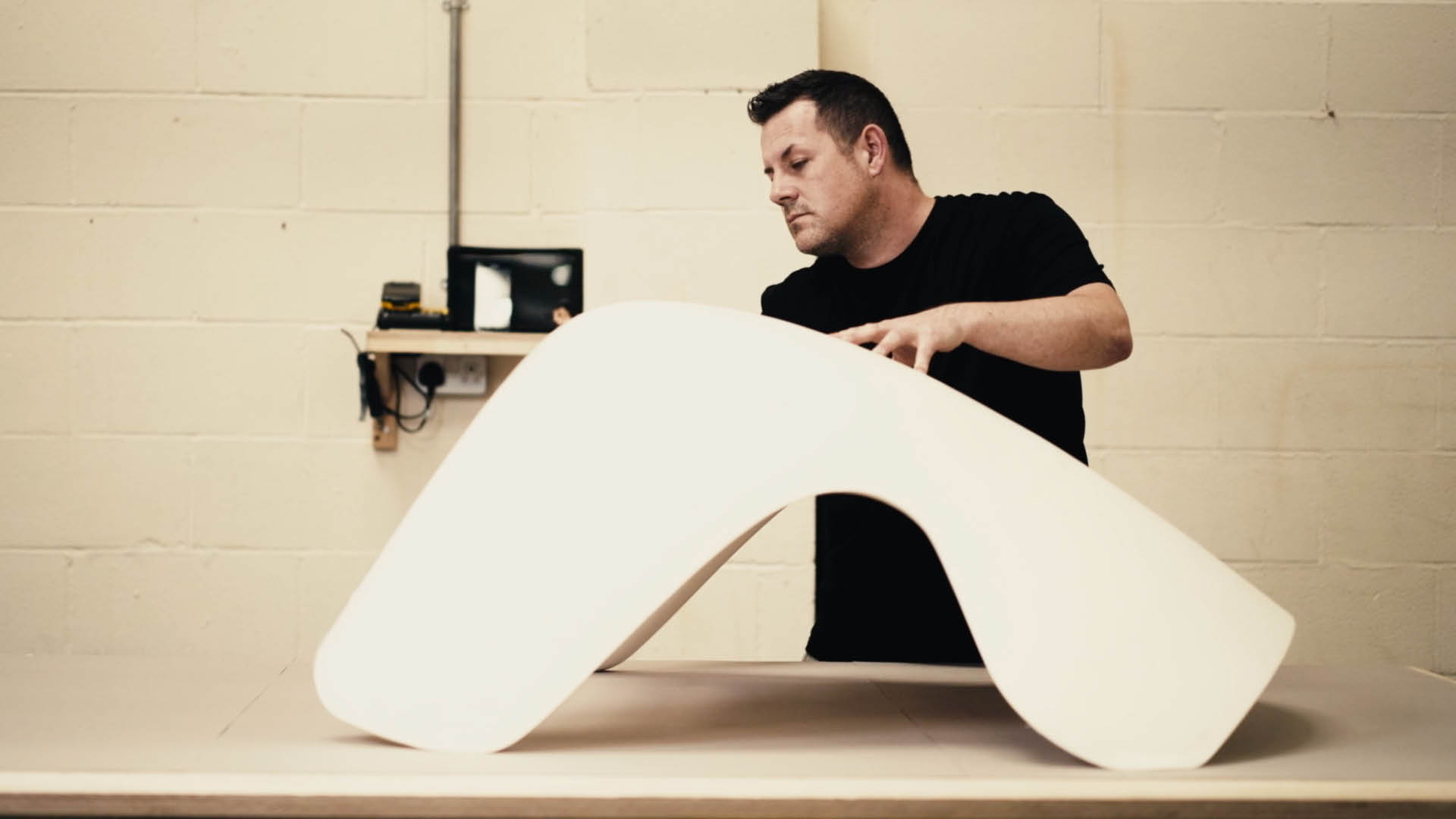
Master Upholsterer and furniture developer Steve talks about his tailored approach to fabric and patterns…
Sculpted contours. Flowing organic lines. Elegantly comfortable forms. None of these trademark elements of the Boss Design style would be possible without the expert tailoring our highly skilled upholsterers bring to the table. They are turning their trade into an art form, which is part and parcel of the way we make our furniture. The art of patterning is a creative philosophy articulated by one of our master upholsterers, Steve, an upholsterer of over 25 years who works alongside our designers to develop new lines of furniture.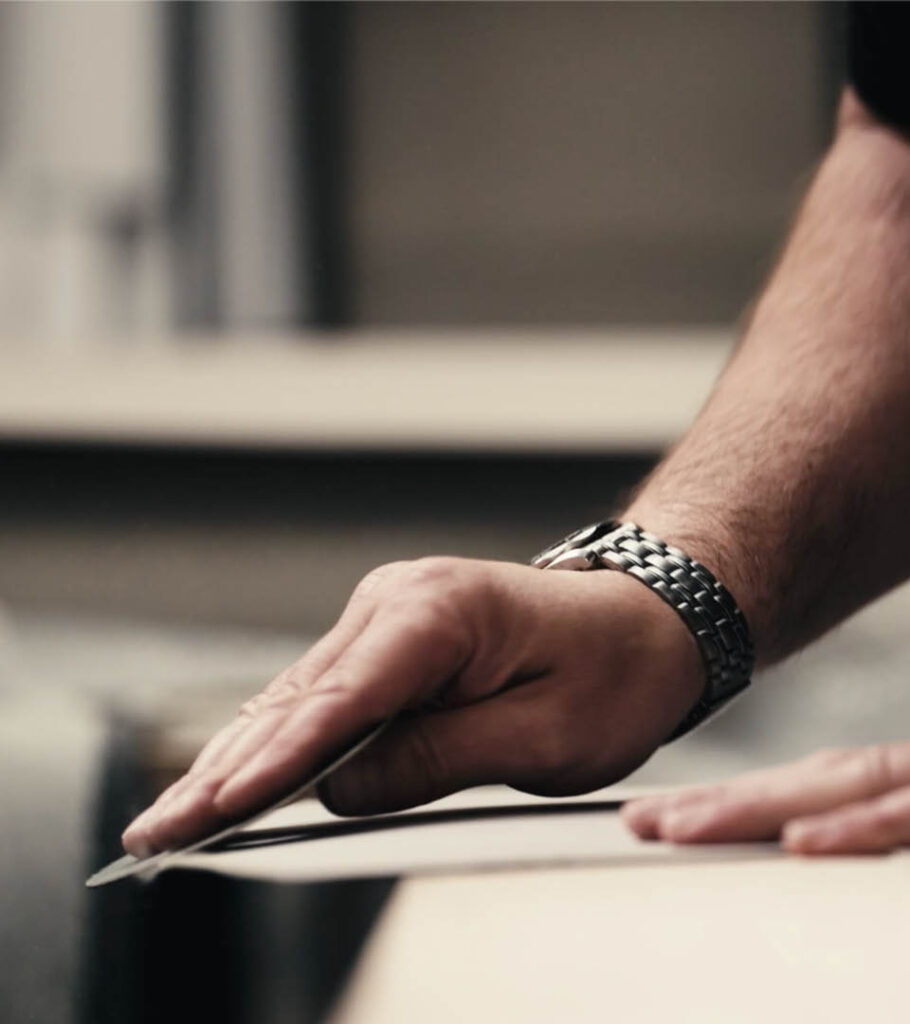
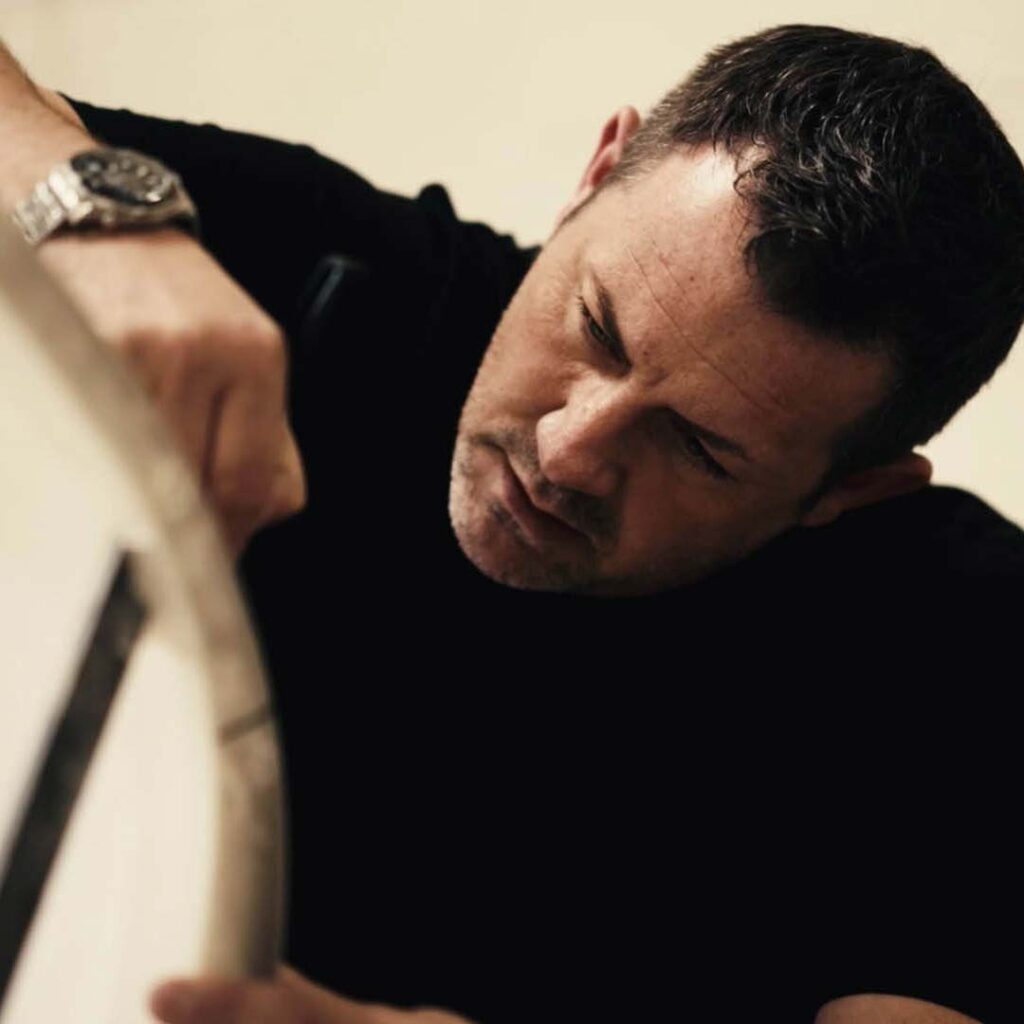
“When I first started making furniture, everything was very square. Square arms, square back, square seats. You could go into any bank anywhere in the world and it would have very blocky furniture, like Lego. They were so easy to pattern it was unbelievable” says Steve.
“However, the way we design furniture has changed,” he continues. “Fashion goes in circles and the forms we design now are more organic, inspired by the mid-century modern look of the 60s and 70s but with contemporary appeal. I had to find creative new ways to tailor these pieces.”
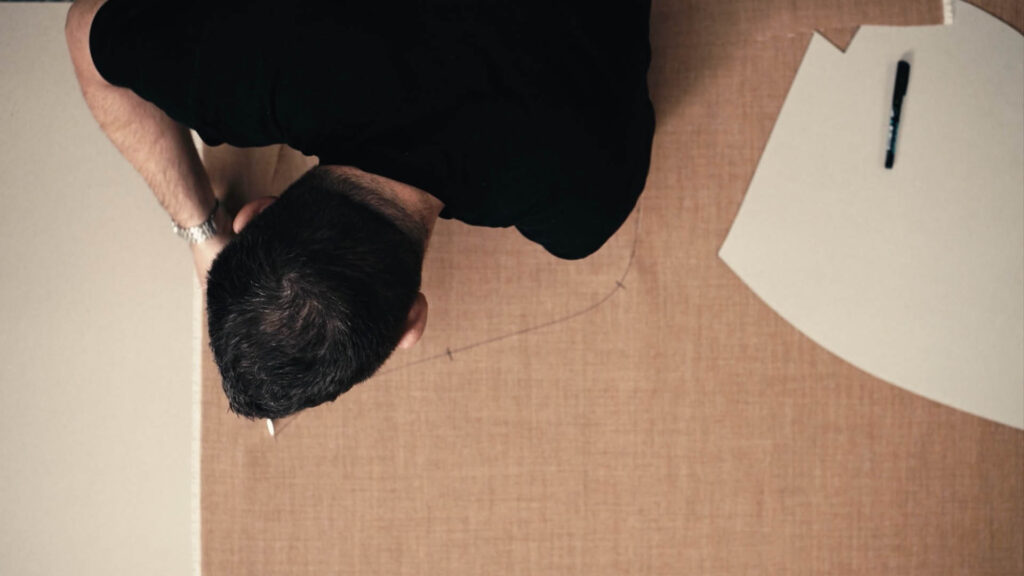
Saville Row Precision
Steve found inspiration by watching videos of seamstresses and tailors. These skilled practitioners on Saville Row measure, cut and stitch fabric to fit the curved lines of the human form, and Steve now does the same as he figures out how to cover the sculpted forms our designers come up with.
“For example, there’s our latest wing back chair, Amelia,” says Steve. “With flowing, never-ending lines like that it’s extremely hard to convince a piece of fabric to warp itself around the shape. We don’t like exposed seams or zips on show, so you have to get really creative with regards to how you cut the pattern and stitch it so that everything is concealed.” he says
“I was literally drawing shapes onto the foam prototype so the fabric shapes merged with the beautiful, flowing lines of the chair. It’s a freehand thing”
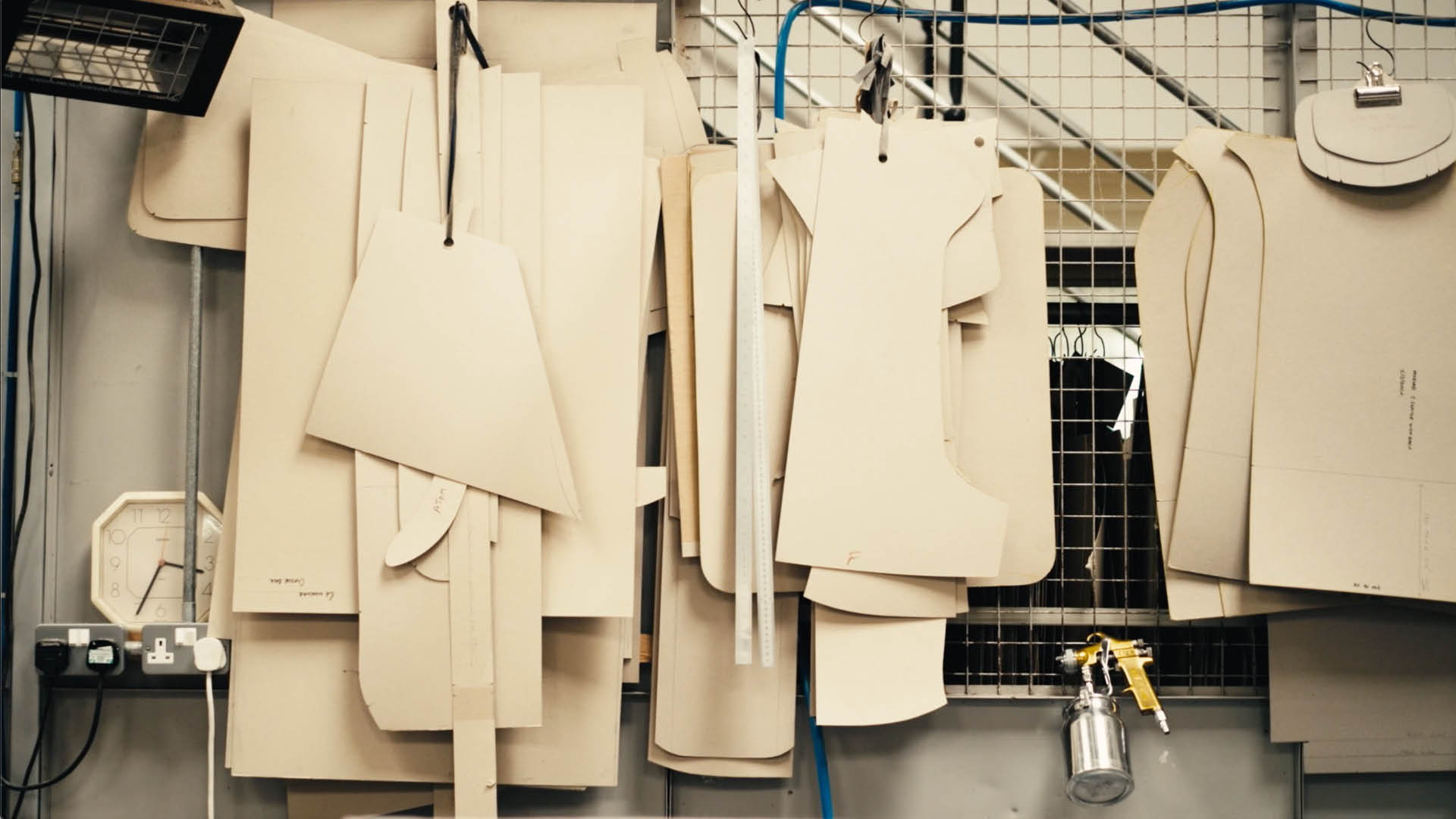
Seams suited to forms
All the while, he’s thinking creatively, looking for better ways to accentuate the design by better positioning the seams. “Could we curve it, could we taper it, could we tailor it to make it more attractive? I’ve moved away from just putting
seams where you expect them,” he says.
A pattern for each fabric
“Outside of work I’m an artist and I’ve always punished myself trying to achieve perfection,” he says. “Twenty years ago, if we’d designed a chair like Amelia we’d have done one pattern for it, but I’ve got to the point where I’ve realised that every piece of furniture needs more than one pattern. Every fabric will hold to the form of the piece in a different way, so we adjust our patterns for each fabric we use.”


Amelia from Boss Design
“When Amelia went to the shop floor it had five or six patterns, but we’ll add to them as customers specify different fabrics. In a year I’d say Amelia will go from six to 15,” continues Steve
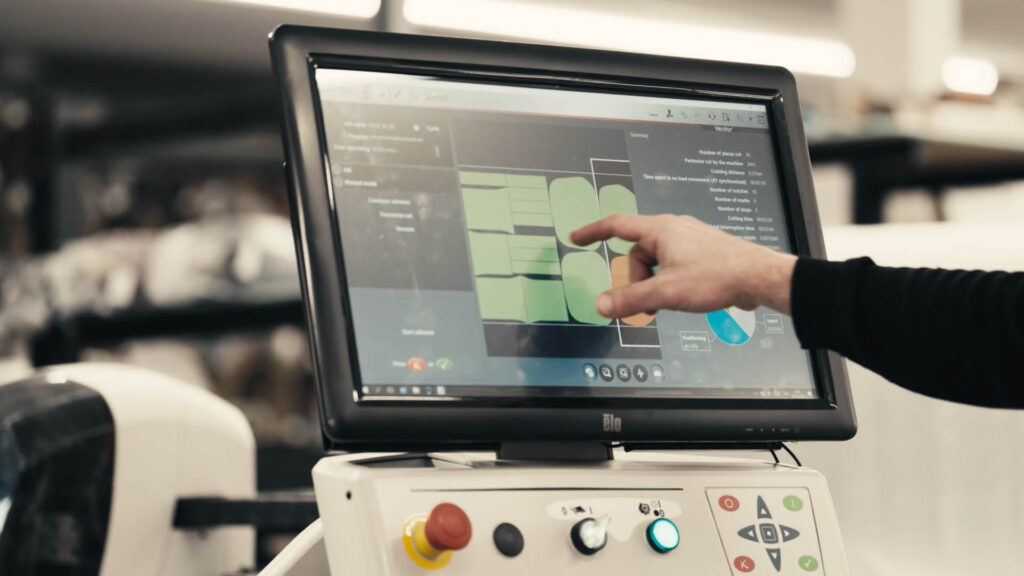
This is possible thanks to our use of the latest technology. “We’ve got a computer-aided patterning machine with the ability to grow or shrink a pattern by length, width or on the diagonal, and you can customise each individual panel if you need to. Even if you’ve got a crazy fabric that you think will never fit, we can adjust the digital pattern in seconds. It’s engineered patterning – millimetre perfect,” he says.
Even when the perfect pattern has been developed for a new armchair or sofa, Steve will not rest. His meticulous dedication to detail exemplifies the Boss approach, and a commitment to ensure that whether the seat we manufactureis number one, 500 or 5,000, its form will replicate exactly the original design.
The challenge is that every fabric has its own individual qualities. For example, leather is thicker and stiffer than textiles, while the new sustainable fabrics Boss Design is introducing have different levels of flexibility and suppleness than man made fibre. This is where Steve takes the art of patterning to another level.
